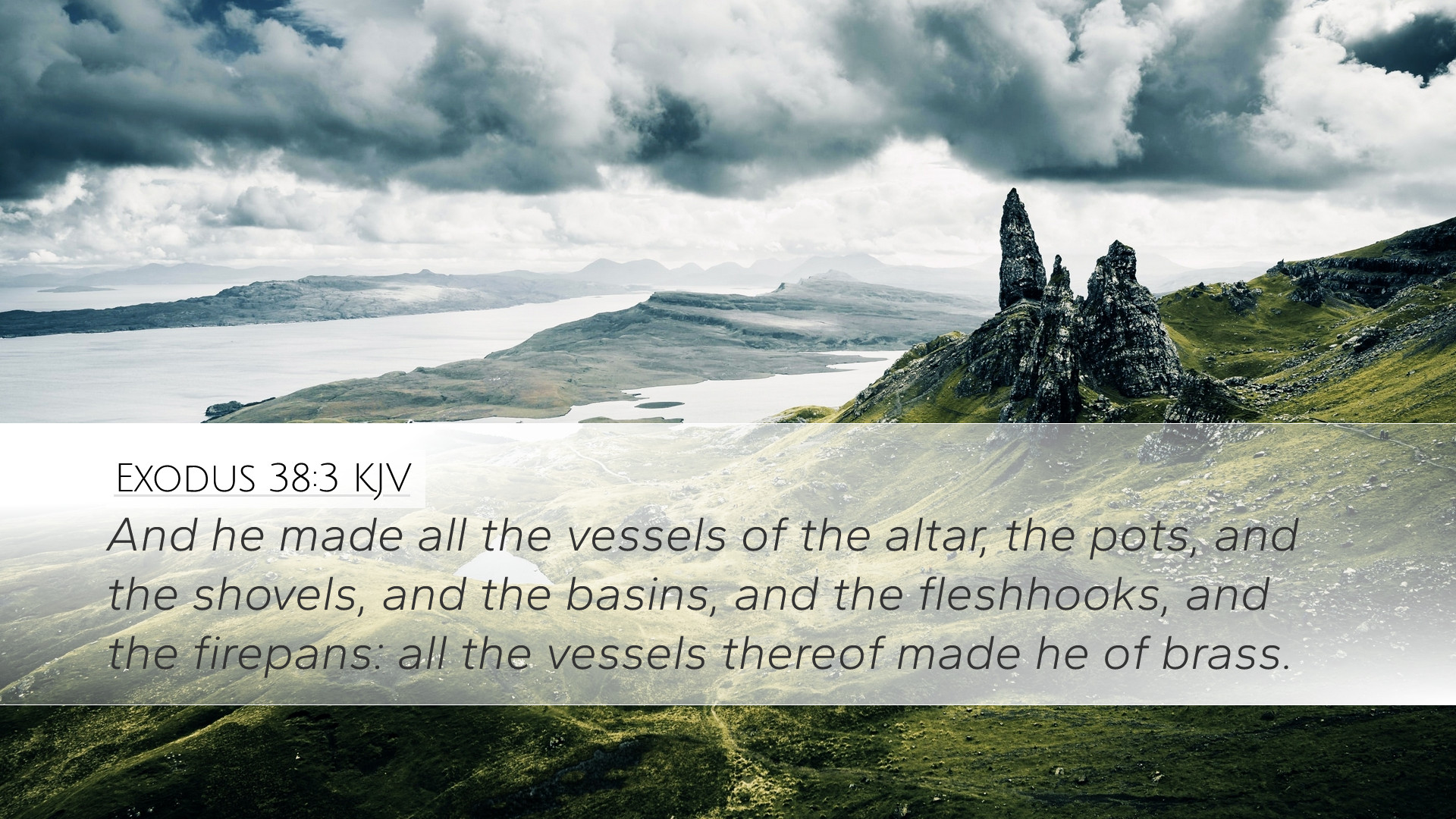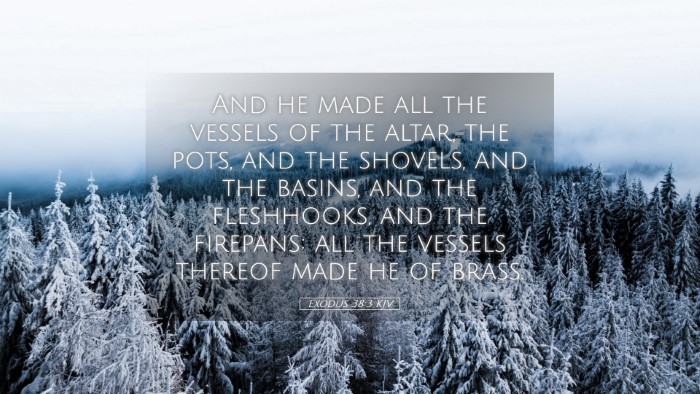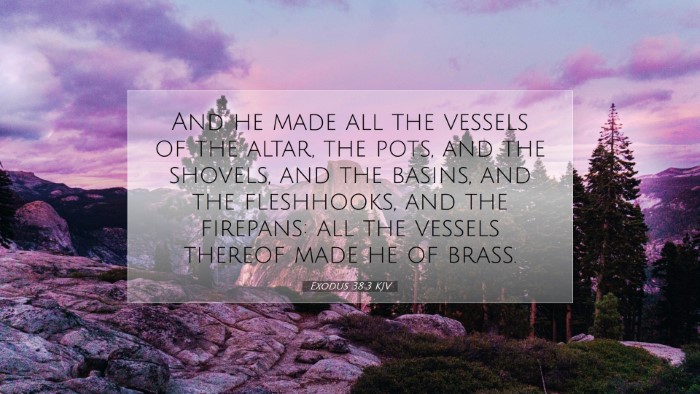Exodus 38:3 - A Commentary
Exodus 38:3 states, "And he made all the vessels of the altar, the pots, and the shovels, and the basins, and the flesh-hooks, and the fire-pans: all the vessels thereof made he of brass." This verse provides insights into the materials and objects used in the altar's construction, underscoring key theological themes relevant for pastors, students, theologians, and Bible scholars.
Understanding the Context
The verse is situated within the larger narrative of the Tabernacle's construction as instructed by God to Moses on Mt. Sinai. In Exodus chapters 25-40, the meticulous details of the Tabernacle and its furnishings are provided, highlighting God's desire for a dwelling among His people. This passage emphasizes the significance of the altar as the focal point for worship and atonement in Israelite religion.
Material Significance
Brass as a Symbolic Material: The choice of brass for the altar's utensils is particularly noteworthy. Matthew Henry reflects on the symbolism of brass, often associated with judgment and strength in Scripture. In this sense, brass represents the seriousness of atonement and the authority of God in issues of sin and sacrifice.
Durability and Refinement: Albert Barnes comments on the durability of brass, reinforcing the idea that the tools used in the worship of God should be enduring. This speaks to the permanence of God's covenant and the lasting nature of His promises to His people. The refinement and effort in crafting these vessels reveal the value placed on worship and the offerings presented to God.
The Functional Aspects
Purpose of the Vessels: Each vessel mentioned in this verse serves a distinct purpose in the sacrificial system. The pots, shovels, basins, flesh-hooks, and fire-pans each play crucial roles in the processes of sacrifice and offering.
- Pots: Used for cooking the flesh of the offerings.
- Shovels: Essential for managing the ashes and coals, indicating the necessary maintenance of the altar.
- Basins: Important for collecting the blood of sacrifices, a frequent theme in atonement.
- Flesh-hooks: Instrumental in handling the meat of the sacrifice to ensure proper offering to God.
- Fire-pans: Key for carrying coals from the altar, essential for maintaining the sacrificial fire.
Theological Implications
Representation of Christ: The various vessels of the altar can be seen as foreshadowing the ultimate sacrifice of Jesus Christ. Adam Clarke points out that each piece of equipment used in the sacrificial system sheds light on the completeness of Christ's atonement. Just as the priests relied on these tools for sacrificial procedures, believers today rely on Christ's finished work on the cross.
Call to Holiness: The meticulous detail in the construction and use of these vessels highlights the call to holiness that God places upon His people. As highlighted by Henry, God desires to dwell with His people, and worship must involve preparation and an awareness of the sacredness of the act of offering. It is a reminder for modern believers that our approach to God in worship should be marked by reverence.
Lessons for Contemporary Worship
Understanding the importance of the vessels used in worship enhances the appreciation for modern practices. While Christians today may not use the same physical implements, the principles behind their use stand firm:
- Preparation: Just as the ancient Israelites prepared vessels for worship, believers should prepare their hearts and minds for genuine worship experiences.
- Respect for God’s Holiness: Every aspect of worship reflects God’s holiness and should be treated with utmost reverence.
- Focus on Sacrifice: The sacrificial system serves as a reminder of the cost of sin and the grace found in Christ, urging believers to live lives reflective of this grace.
Conclusion
Exodus 38:3, while a seemingly simple mention of materials and objects, opens up rich theological reflections on worship, sacrifice, and holiness. Church leaders, students of theology, and scholars can gather from this passage that every detail in worship, whether in ancient or modern contexts, reflects deeper truths about the character of God and the nature of our relationship with Him. It serves as a powerful reminder to engage in worship that acknowledges the weightiness of sin and the grace offered through Christ.


